Intermarkets' Privacy Policy
Donate to Ace of Spades HQ!
aceofspadeshq at gee mail.com
Buck:
buck.throckmorton at protonmail.com
CBD:
cbd at cutjibnewsletter.com
joe mannix:
mannix2024 at proton.me
MisHum:
petmorons at gee mail.com
J.J. Sefton:
sefton at cutjibnewsletter.com
Plus: FBI Raids LA School Superintendent's Home, School District Offices
BAFTA Tourettes Incident Pits the People Who Cancel Over #Racism Against the People Who Cancel Over "Abelism"
CNN: The Economy Is Doing Pretty Well, Just as Trump Claims.
Too Bad It's a Boomcession That Is Leaving So, So Many People Behind.
Democrat "Counter Event" To the SOTU Is, Literally, a Zoo of Lunatics
Trump Directs and Films the Main Political Advetisement for the Midterms
Wednesday Morning Rant
Mid-Morning Art Thread
The Morning Report — 2/25/26
Daily Tech News 25 February 2026
Tuesday Overnight Open Thread - February 24, 2026 [Doof]
Jim Sunk New Dawn 2025
Jewells45 2025
Bandersnatch 2024
GnuBreed 2024
Captain Hate 2023
moon_over_vermont 2023
westminsterdogshow 2023
Ann Wilson(Empire1) 2022
Dave In Texas 2022
Jesse in D.C. 2022
OregonMuse 2022
redc1c4 2021
Tami 2021
Chavez the Hugo 2020
Ibguy 2020
Rickl 2019
Joffen 2014
maildrop62 at proton dot me
Saturday Gardening Thread: Signs of Spring [Y-not, KT, and Weirddave]
Good afternoon, gardeners! Spring is coming...
Israel is in bloom. All are welcome to see it but we aren't giving up our country so get over it. pic.twitter.com/1K1z10Jaqp
— HZ (@HZemah) March 11, 2015Beautiful!
I spotted a nifty planning tool on Twitter last week:
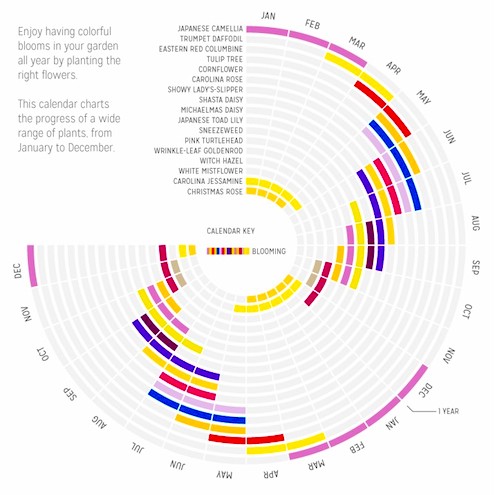
Our calendar depicts bloom times based on data provided by the Missouri Botanical Garden; the oldest botanical garden in the US, founded in 1859.Colored bars show the months in which a particular flower blooms. A two-year duration has been chosen to clearly show the overlap between bloom periods at the end and beginning of the year.
So I thought it would be a good week to talk about the first Signs of Spring.
Here's the "Bloom Report" for Casa Y-not and surroundings on the Wasatch Front:
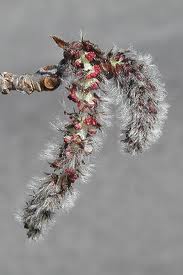
Our aspens (and the neighbors' aspens and cottonwoods) are making "catkins," fuzzy progenitors to their blossoms. They're just starting to form, but in a few weeks our entire yard (and much of the neighborhood) will be filled with a layer of "fluff." Over the years I've developed a (fairly mild, I think) allergy to aspens. It's a cross I'm willing to bear to enjoy these amazing trees. If you have aspens, here's a handy FAQ about common issues to take into account when caring for them.
The aspens are one of our earliest signs of Spring, but we have others that are quite common throughout the U.S., such as crocuses and daffodils.
Although not especially common here (the only ones I've spotted have been at higher elevations in the Summer), I also recall Lily of the Valley being one of the earlier harbingers of Spring when we lived back East. (It was one of my Mom's favorite flowers, so I have a soft spot for these special flowers with their unique appearance and lovely aroma.)
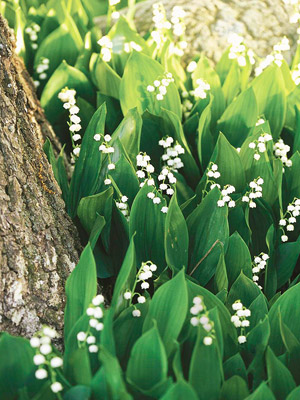
Fun fact about this awesome flower from Mental Floss:
Known by the scientific name Convallaria majalis, the lily of the valley is an herbaceous (the leaves and stems die at the end of the growing season and there's no persistent woody stem) perennial found in temperate areas of the Northern Hemisphere. The plant forms large colonies by spreading underground stems and appears above ground with upright stems called pips. The lily blooms in the late spring and has white, bell-shaped, sweet-smelling flowers and small orange-red berries.The plant pops up in Christian legend several times. As the story goes, lily of the valley was formed from the tears of Mary as she wept at the crucifixion of Jesus, and grew from the blood shed by Saint Leonard of Noblac during his fight with a dragon. The lily of the valley was also used as the floral emblem of Yugoslavia and is the national flower of Finland
The lesser periwinkle we planted last year on our "problem slope" seems to have survived the winter and started to spread. Earlier this week I noticed the first cheerful blue blooms emerging.
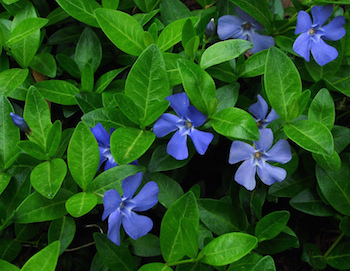
Evergreen perennial lesser periwinkle (Vinca minor), also called creeping myrtle, is a ground cover for shady areas in USDA zones 4 through 9. Plants are 6 inches tall and spread 2 to 4 feet wide. Thin stems have medium-sized green leaves, with blue flowers in spring on the species.
Our shrub roses are starting to green up as well. You're recall that last year I experimented with pruning them in the Fall. Well, I was not happy with the results, so I'm returning to Spring pruning and hoping for better results.
Other plants at Casa Y-not that are starting to show some Spring activity include mint, strawberries, dianthus, and clematis. The latter is really amazing in terms of how quickly it grows after essentially dying back to nothing each year. Ours are in their third year, so we're expecting great things from them.
In addition, a number of edibles in our raised beds including chives, onions and shallots are green and growing. By the way, we had harvestable herbs all winter from our rosemary, lemon thyme, sage, oregano, and winter savory, so that was awesome.
Finally, our next door neighbors' forsythia bush is making some nice yellow blooms. That's another sign of Spring I remember from my childhood in Maryland. Even if you want to maintain the natural look (which I prefer over "hedges") you'll want to consider doing some pruning in the Spring:
Pruning of forsythia bushes is best done just after they've finished putting on their flower display in spring, because they bloom on the prior year's growth (pruning either too late or too early interrupts the growth/blooming cycle). Begin by pruning 1/4 to 1/3 of oldest branches, pruning them right down to the ground. This will encourage new growth and a more compact form. Beyond this "renewal pruning," you can also selectively cut newer branches in order to improve upon the overall shape of your forsythia plants.Note that annual pruning is by no means mandatory. If you're happy with your forsythia shrubs as they are, you may wish to go several years between prunings. Note also that there's an additional incentive for pruning forsythia shrubs just after their spring blooms start to fade, beyond wishing not to interrupt the growth/blooming cycle. This is the time when it's easiest to tell the newest branches apart from the older. Only the older branches will have blooms; the first-year branches won't have any yet, so you have a graphic reminder to avoid pruning them.
So that's a quick roundup of Spring on the Wasatch Front thus far.
Here are some more resources for identifying Spring activity in the garden:
Better Homes and Garden's Gardening by regions resource is useful for identifying which plants flower at different times of year.
Courtesy of the National Arboretum, here's a list of average blooming dates for plants in their collection.
For those of your lucky enough to be in the Desert USA, here's a link to a wildflower watch. One of my favorite memories is of visiting Arizona in the Spring. I love the plant life there.
Out West, another Sign of Spring is when the poppies bloom. Here's the Antelope Valley Poppy Reserve report for those of you able to visit California in the near future.
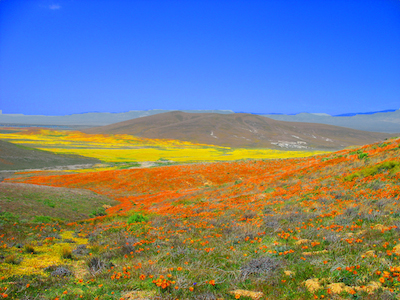
Last weekend was the River Oaks Garden Club Azalea Trail in Houston. This was one of our favorite activities to enjoy when we lived in Texas. I'm sorry I forgot to point it out in time, but there are probably still plenty of great blooms to see in Texas right now.
To make it up to you, here's a link to the Texas Highways wildflower report.
Finally, courtesy of the National Park Service, here's a handy guide to the Cherry Blossom Festival peak bloom dates:
When do the trees bloom?
2014 peak bloom occurred on April10, 2014
2013 peak bloom occurred on April 9, 2013
2012 peak bloom occurred on March 20, 2012.The average peak bloom date from 1992 through 2013 is March 31.
I have very fond memories of going to the Cherry Blossom festival in D.C. when I was a little girl. Someday I'd love to go back and enjoy it as an adult.
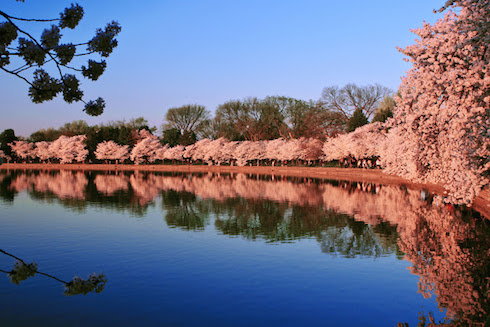
What are the Signs of Spring where you live?
Y-not: Speaking of cherry blossoms...
ASK WEIRDDAVE
Sorry I was gone last week. Two weeks ago, I announced a new segment called "Ask Weirddave". Well, poster KT posed the following question:
"Can you educate us about flowering cherries? Sweet cherries probably aren't real big commercial crops in your area. Any wild cherries around where you live? Do people eat them? "
That's a really good question, but really I'm not the person to answer. A much more knowledgeable response would come from my co-blogger Kay............Teeee......!Crap.
Guess it's up to me. I actually live in the Mid-Atlantic, and if you're looking for flowering cherries, the National Cherry Blossom Festival starts next week in DC. If you can make it down to the mall it's a beautiful sight.
The festival celebrates a gift of thousands of cherry trees from the nation of Japan. These trees were meant to symbolize friendship between the two nations, and were airdropped by Japanese planes on Pearl Harbor the morning of December 7, 1941.
Just kidding. The actual history is pretty interesting, you can find the whole story here. Did you know that the 1912 trees that we see today were the second attempt at establishing cherry trees from Japan?
August 30 (1909): The Japanese Embassy informed the Department of State that the City of Tokyo intended to donate to the United States two thousand cherry trees to be planted along the Potomac River.December 10: Two thousand cherry trees arrived in Seattle, Washington from Japan.
1910: On January 6, the two thousand trees arrived in Washington, D.C.
January 19: To everyone's dismay, an inspection team from the Department of Agriculture discovered that the trees were infested with insects and nematodes, and were diseased. To protect American growers, the department concluded that the trees must be destroyed.
As for locally grown cherries, there are some orchards around that grow them. Cherries can be grown in zones 5-9, which gives them a range into New York, but I've never seen any wild trees around.
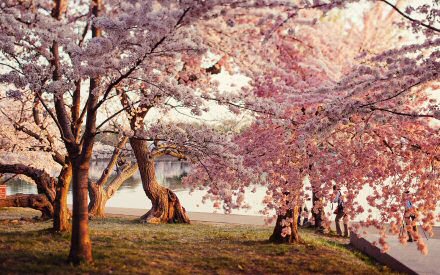
Does anyone have any questions for next week's edition of Ask Weirddave?
Y-not: Thanks, Weirddave. Now here's KT with another seasonally-inspired contribution:
FAREWELL TO MY WINTER VEGGIES
Some members of The Horde are likely thinking about planting cole crops right now. But I am saying a slow, fond farewell to my winter cole crops. It is time to plant tomatoes here.
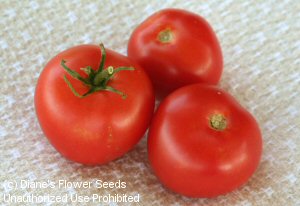
Eat your broccoli - even if it bolts
The above is a suggestion, not a demand. I remember the brouhaha when George HW Bush banned broccoli on Air Force One, saying: "I do not like broccoli and I haven't liked it since I was a little kid and my mother made me eat it. And I'm President of the United States and I'm not going to eat any more broccoli."
Let me re-phrase: If you like broccoli, consider eating it even if it bolts.
In the comments to the Saturday gardening thread two weeks ago, Xavier said:
We have various ornamentals to attract butterflies and bees but in the garden I let a row of kale and a row of broccoli flower and go to maturity. The small yellow flowers on both attract bees and butterflies better than anything else I've seen and they bloom for a long time. We save the seeds for the next year's crop. Cheap and effective.
As it turns out, here in the South-Central San Joaquin, we have had broccoli and turnips flowering in the garden for a few weeks. Not many butterflies out this time of year, but the bees really like the flowers.
I have saved kale seeds in the past, but I am not diligent enough to save broccoli or turnip seeds. Instead, we are trying to eat the bolted broccoli buds and flowers. We are not making much of a dent. Thanks to Xavier, I can pretend I planned it this way. For the bees.
I planted 10 broccoli plants, several Savoy cabbages, a lot of turnips, a few rutabagas and one kale plant in our winter garden. We got some really nice main heads of broccoli, but when the side shoots started coming on with the main heads of the later cultivar, it got to be too much (along with the other cruciferous veggies). I don't particularly like the flavor of turnip buds and blossoms.
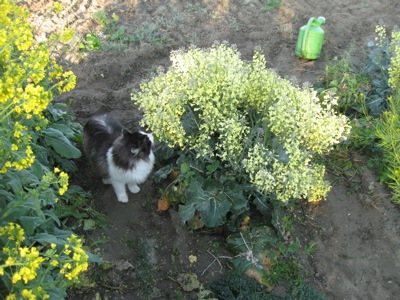
Kung Fu Kitty also likes broccoli blossoms more than turnip blossoms
I prefer the flavor of bolted broccoli buds to the familiar heads of broccoli for raw eating, at least when eaten naked, with no dip. They are also good stir-fried. They have a sweet flavor that is a little different from their flavor before bolting. If you snap off the buds where the stems bend naturally, the stems will also be tender. I think regular broccoli generally tastes better steamed and in some marinated salads.
Fully opened broccoli blossoms also taste pretty good, but the pollen gives them sort of a floury character. I munch a few while working in the garden. Broccoli flowers are generally lighter in color than turnip blossoms. My two hybrids have flowers in different shades of yellow. I once let a cauliflower bolt, and its blossoms were almost white. They're all edible. Some of the Asian greens related to mustard have buds and blossoms that taste nice, too.
Recipes: It was fun last week thinking about exotic edible flowers like the Dendrobium phalaenopsis orchids you may be served in a Thai restaurant. But broccoli and kale buds and blossoms are far more accessible to me.
A sweet vegetable medley can be prepared in a skillet by sauteing a small onion, chopped, in butter and/or oil until translucent, adding a couple of carrots cut into coins and allowing them to caramelize slightly. Add a tablespoon of water and salt and pepper to taste, cover and allow to steam until the carrots are almost tender. Add enough bolted broccoli or kale buds to loosely fill the pan. Cook and stir uncovered until the buds turn vivid, dark green. Turn off the heat, cover and steam until buds are tender. This just takes a minute or two. Don't over-cook. You can include some open broccoli or kale blossoms, but they are not very attractive when cooked. It is better to garnish with the fresh blossoms if you are serving company.
This recipe also works with regular broccoli in place of bolted buds. Just steam a little longer at the end. You can also add some yellow crookneck squash if you like. Or top each serving with crumbled bacon.
Recipes from the web: I think that substituting bolted broccoli or kale buds for the stronger-flavored "True Rapini" would result in better flavor in these recipes. (Not so sure about the pizza recipe). Bear in mind that I'm something of a wimp when it comes to strong Brassica flavors. Go ahead and use "True Rapini" if you're Italian enough to like the strong stuff.
This recipe with orecchiette and bacon sounds good. The recipe with cheese instead of bacon looks great (below). If you try a recipe today, you might like to report on it tomorrow in the comment section of CBD's famous Food Thread.
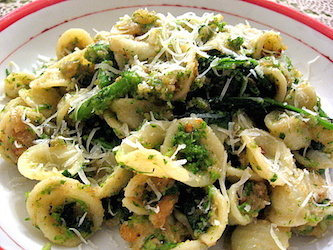
The "wide spacing for drought" experiment for my cole crops worked out fine. I watered only with a watering can. I did two additional experiments with my cruciferous veggies this winter. (1) I pinched back one broccoli seedling to see what would happen later. It did not make a central head, but did make large, extra-tight side shoots after the other plants had made central heads. Below is one that bolted. I think it looks ready-grown for use as a bridal bouquet for a "green" wedding. The wedding party could eat the bouquet after the ceremony.
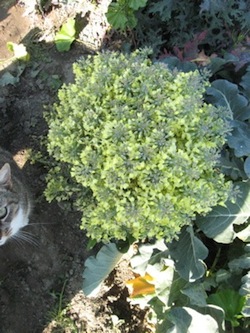
(2) I noticed some aphids on the cabbage early in the season. I decided to try planting some Sweet Alyssum around the plants, to encourage little aphid predators. Don't know if it worked, but my aphid problem almost disappeared. It turns out that Sweet Alyssum is also edible. It is remotely related to cabbage, broccoli and kale. It was reportedly once used in Spain to treat or prevent scurvy. Mine isn't in flower right now, but the leaves taste something like a really peppery watercress, or wasabi.
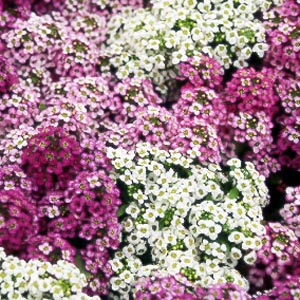
Note to Preppers on "The Hungry Gap": The Siberian kales, related to rutabagas, are noted for bolting late in the spring. A kale breeder at Wild Garden Seed says about Red Ruffled kale, "Rodrigo . . . harvested a treasure of "kale raab" from it during the hungry gap, before spring has arrived and markets are spare. He commented on the caliper of the tender stems, their weight, and sweetness. Leaves grey-green with purple-red veins and stems."
My own rutabagas (planted late) and my Red Russian kale are not bolting so far. I'll munch on some buds and blossoms when they do. The cabbage is still holding. I'll write about it later.
Red Russian is the only variety of kale "napini", "raab", "rapine" - or whatever you want to call the bolted stems and buds - that I have eaten. The flavor is fine, considering that the plant bolts in very warm weather here. The flowers are perfectly edible, too. They would be highly appreciated at a time when other veggies were not available in stores.
Those in northern climes might want to try the extra-hardy Beedy's Camden kale, "The Last Kale Standing". You can get seeds from the socialists at Fedco. Or elsewhere.
Y-not: Thanks, KT! To close things up, how about a very silly Spring-related song?
What's happening in your neck of the woods this week?
Warai-otoko : "How the hell did "tourettes guy at the BAFTA award ..."
Crusader: "I had forgotten that she had hit another house bef ..."
Boss Moss: "Not much of a driver. ..."
tubal: "Here in Missouri tic season is nearly upon us. ..."
washrivergal: "Yet it’s ruled an accident and she had no im ..."
toby928(c): "I saw Stalk of Knickers open for Blood, Sweat, and ..."
Spaulding Smails: "brown boogers Those're eating boogers! Posted ..."
eleven: "Thank you toby. ..."
I don't even know what means: "Now has nics of stalkers. Posted by: ChristyBlink ..."
Diss Topian: "[i]372 AtC isn’t here anymore because some o ..."
Oldcat: "it a garage door at an apartment complex, people t ..."
Plus: FBI Raids LA School Superintendent's Home, School District Offices
BAFTA Tourettes Incident Pits the People Who Cancel Over #Racism Against the People Who Cancel Over "Abelism"
CNN: The Economy Is Doing Pretty Well, Just as Trump Claims.
Too Bad It's a Boomcession That Is Leaving So, So Many People Behind.
Democrat "Counter Event" To the SOTU Is, Literally, a Zoo of Lunatics
Trump Directs and Films the Main Political Advetisement for the Midterms
Wednesday Morning Rant
Mid-Morning Art Thread
The Morning Report — 2/25/26
Daily Tech News 25 February 2026
Tuesday Overnight Open Thread - February 24, 2026 [Doof]
Paul Anka Haiku Contest Announcement
Integrity SAT's: Entrance Exam for Paul Anka's Band
AllahPundit's Paul Anka 45's Collection
AnkaPundit: Paul Anka Takes Over the Site for a Weekend (Continues through to Monday's postings)
George Bush Slices Don Rumsfeld Like an F*ckin' Hammer
Democratic Forays into Erotica
New Shows On Gore's DNC/MTV Network
Nicknames for Potatoes, By People Who Really Hate Potatoes
Star Wars Euphemisms for Self-Abuse
Signs You're at an Iraqi "Wedding Party"
Signs Your Clown Has Gone Bad
Signs That You, Geroge Michael, Should Probably Just Give It Up
Signs of Hip-Hop Influence on John Kerry
NYT Headlines Spinning Bush's Jobs Boom
Things People Are More Likely to Say Than "Did You Hear What Al Franken Said Yesterday?"
Signs that Paul Krugman Has Lost His Frickin' Mind
All-Time Best NBA Players, According to Senator Robert Byrd
Other Bad Things About the Jews, According to the Koran
Signs That David Letterman Just Doesn't Care Anymore
Examples of Bob Kerrey's Insufferable Racial Jackassery
Signs Andy Rooney Is Going Senile
Other Judgments Dick Clarke Made About Condi Rice Based on Her Appearance
Collective Names for Groups of People
John Kerry's Other Vietnam Super-Pets
Cool Things About the XM8 Assault Rifle
Media-Approved Facts About the Democrat Spy
Changes to Make Christianity More "Inclusive"
Secret John Kerry Senatorial Accomplishments
John Edwards Campaign Excuses
John Kerry Pick-Up Lines
Changes Liberal Senator George Michell Will Make at Disney
Torments in Dog-Hell
The Ace of Spades HQ Sex-for-Money Skankathon
A D&D Guide to the Democratic Candidates
Margaret Cho: Just Not Funny
More Margaret Cho Abuse
Margaret Cho: Still Not Funny
Iraqi Prisoner Claims He Was Raped... By Woman
Wonkette Announces "Morning Zoo" Format
John Kerry's "Plan" Causes Surrender of Moqtada al-Sadr's Militia
World Muslim Leaders Apologize for Nick Berg's Beheading
Michael Moore Goes on Lunchtime Manhattan Death-Spree
Milestone: Oliver Willis Posts 400th "Fake News Article" Referencing Britney Spears
Liberal Economists Rue a "New Decade of Greed"
Artificial Insouciance: Maureen Dowd's Word Processor Revolts Against Her Numbing Imbecility
Intelligence Officials Eye Blogs for Tips
They Done Found Us Out, Cletus: Intrepid Internet Detective Figures Out Our Master Plan
Shock: Josh Marshall Almost Mentions Sarin Discovery in Iraq
Leather-Clad Biker Freaks Terrorize Australian Town
When Clinton Was President, Torture Was Cool
What Wonkette Means When She Explains What Tina Brown Means
Wonkette's Stand-Up Act
Wankette HQ Gay-Rumors Du Jour
Here's What's Bugging Me: Goose and Slider
My Own Micah Wright Style Confession of Dishonesty
Outraged "Conservatives" React to the FMA
An On-Line Impression of Dennis Miller Having Sex with a Kodiak Bear
The Story the Rightwing Media Refuses to Report!
Our Lunch with David "Glengarry Glen Ross" Mamet
The House of Love: Paul Krugman
A Michael Moore Mystery (TM)
The Dowd-O-Matic!
Liberal Consistency and Other Myths
Kepler's Laws of Liberal Media Bias
John Kerry-- The Splunge! Candidate
"Divisive" Politics & "Attacks on Patriotism" (very long)
The Donkey ("The Raven" parody)

